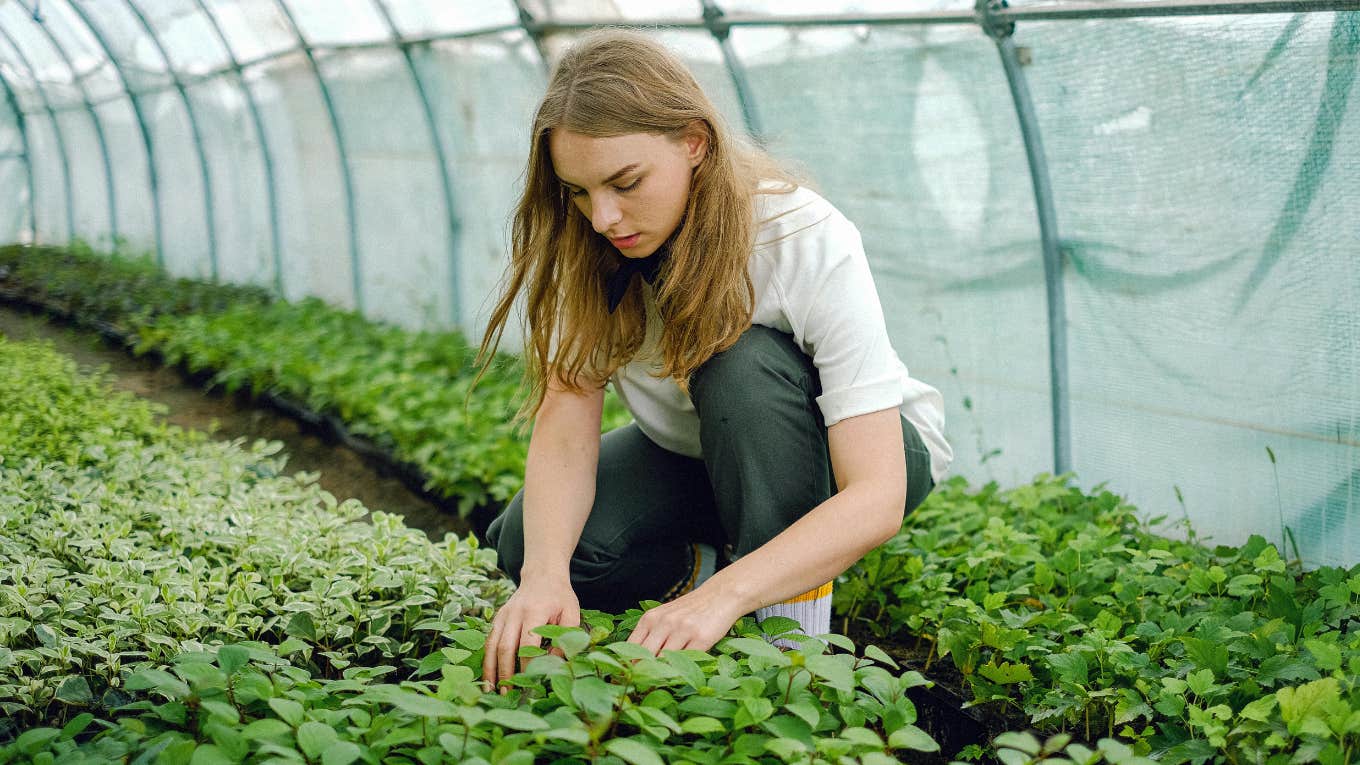Spring is in full swing across the U.S. For many, May marks the beginning of gardening season, when devotees dust off their trowels and take to their yards.
While avid gardeners fight an everlasting battle against tough weeds and invasive bugs, there’s one thing they should avoid at all costs.
A catastrophic injury attorney shared the one common household product you should never use.
Tommy is a lawyer who “handles catastrophic injury and death cases on a daily basis.” He revealed that there’s one particular product that’s still being sold that he would never buy under any condition.
Advertisement
He proclaimed that the weed killer Roundup is something he would never buy or use on his lawn.
Advertisement
“Roundup was designed and manufactured by Monsanto. It’s a weed killer that you spray on your lawn, and it’s been associated with non-Hodgkin’s lymphoma.”
Tommy revealed the name of the harmful, cancer-causing chemical found in Roundup: Glyphosate, an herbicide.
Glyphosate is genotoxic, meaning that it binds directly to a person’s DNA.
Monsanto has been owned by Bayer since 2018. They first introduced Roundup to the market in 1974. They are also the largest producer of genetically engineered seeds on Earth, accounting for 90% of genetically engineered seeds planted worldwide in 2003.
Monsanto even created Roundup-Ready crops, like soybeans and corn, that are glyphosate-resistant, so farmers can use Roundup to control weeds without killing off their crops. Most of the soybean fields within the U.S. are Roundup-Ready.
Advertisement
It’s important to recognize the stronghold Monsanto has on agriculture across the world.
Monsanto made the claim that they’ve changed the ingredients in Roundup, yet Tommy noted, “They continue to go into courtrooms across the United States and argue that there’s nothing wrong with glyphosate and that it doesn’t cause cancer, but they’ve several multibillion-dollar verdicts.”
Tommy mentioned that he has cases coming up that are set to go to trial against Monsanto, as well.
 Gary Barnes / Pexels
Gary Barnes / Pexels
Advertisement
In 2020, a California jury awarded $332 million dollars to a 57-year-old man named Mike Dennis, who alleged that decades of using Roundup caused his rare form of non-Hodgkin lymphoma.
That same year, Bayer announced it would pay up to $10.9 billion to settle 125,000 filed and unfiled claims.
In 2022, the Environmental Protection Agency affirmed that there are “no risks of concern to human health from current uses of glyphosate” as long as it’s used correctly.
Yet various independent studies have found a link between long-term exposure to Roundup and non-Hodgkin lymphoma.
The World Health Organization classified glyphosate as “probably carcinogenic to humans.”
Advertisement
The University of Washington released a study that found a 41% higher risk of non-Hodgkin lymphoma with glyphosate exposure.
In 2022, the Center for Disease Control reported that they tested 650 children and found that 87% of their urine had detectable levels of glyphosate in it.
There are several organic, non-glyphosate alternatives to Roundup to use on your lawn without fear of them being carcinogenic.
Using mulch and pouring boiling water over adult plants can deter weed growth.
Advertisement
Iron-based herbicides and acid-based herbicides, such as vinegar, are other organic alternatives to using Roundup.
 Tima Miroshnichenko / Pexels
Tima Miroshnichenko / Pexels
Advertisement
You can also channel your inner woo and use essential oil-based herbicides that include cinnamon, cloves, and red thyme, which pose minimal risks to the environment and are less likely to leave behind residue in soil or water.
Of course, there’s always good, old-fashioned weed-pulling as an option, as well.
You should also make sure that your dog isn’t eating grass from stranger’s lawns when you go on your daily sniffy walks, as you never know what that grass is being treated with.
However you choose to tackle your lawn care, your health and your future are way more important than the presence of any weeds, so keep that in mind as you dig and plant to your heart’s content.
Advertisement
Alexandra Blogier is a writer on YourTango’s news and entertainment team. She covers social issues, pop culture analysis and all things to do with the entertainment industry.

